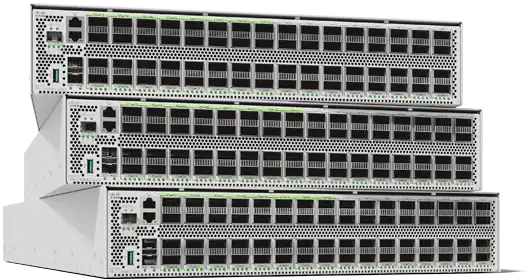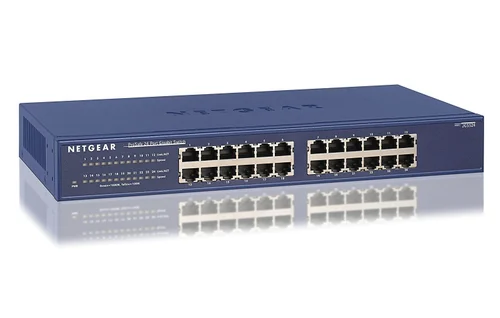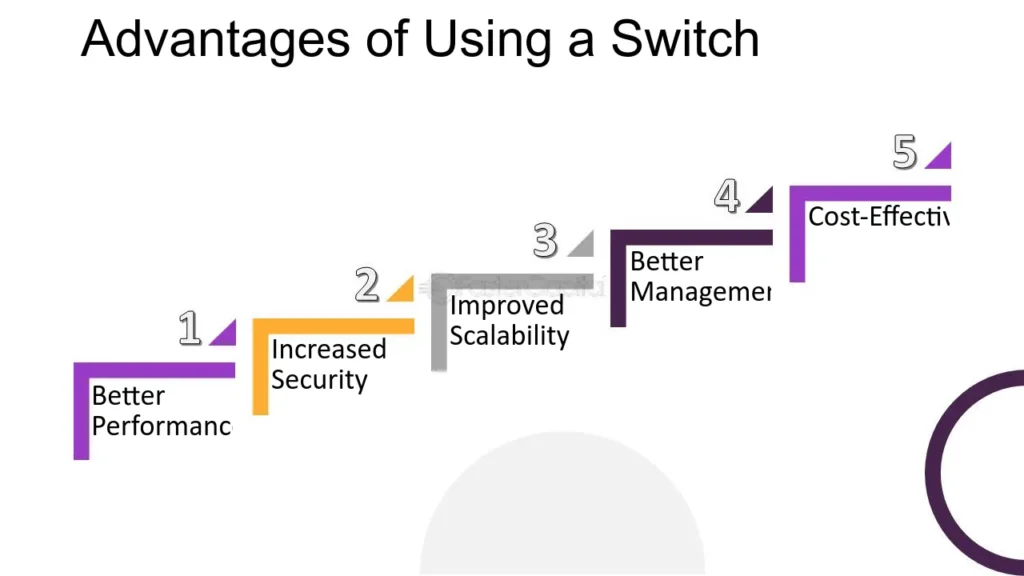In the fast-growing digital world, everything hinges on having a high-speed network switch for businesses, gamers, and tech enthusiasts alike: You could have a data center, 4K streaming, or just a high-performance gaming setup, and thus it is incredibly likely that your experience is defined by the speed of your network switch. But what is the fastest switch out there, and how do you go about getting the right one for your setup? This article will describe some of the fastest switches on the market, their features, and how they can give your network that extra power.
Network Switch Explained
A switch is a networking device that connects several devices in a Local Area Network (LAN) and transmits data packets between them. Switches differ from hubs in that they intelligently route data only to the appropriate receiving device, which alleviates unnecessary stress on the network and enhances network throughput. The speed of a network switch is measured in either Gigabits per second (Gbps) or Terabits per second (Tbps) based on its capacity.
Factors That Matter for the Fastest Network Switch
A few considerations when evaluating the fastest switch are:

- Port Speed: As a result, the speed of the individual ports ranging anywhere between 1 Gbps to 100 Gbps or above.
- Aggregate Bandwidth: This refers to the total throughput of all the ports put together.
- Forwarding Rate: The number of packets that can be forwarded or switched in one second by the switch.
- Latency: This means how long it takes for the data to reach one point from another. The lower the latency, the faster switch.
- Advanced Features: Support for various features, including Quality of Service (QoS), Link Aggregation, and Power over Ethernet (PoE).
The record-breaking Network Switches in 2023
Presenting some of the mega powerful network switches that are out now for several purposes; here they are:
1. Cisco Nexus 9000 Series:

- Speed: Up to 400 Gbps per port.
- Use Case: Data centers and enterprise networks.
- Features: High-density ports, low latency, and advanced security features.
- Why It Is Fast: A switch designed for hyperscale data centers with unmatched speed and scalability.
2. Arista 7280R Series:
- Speed: Up to 100 Gbps per port.
- Use Case: High-frequency trading and cloud computing.
- Features: Ultra-low latency, deep buffers, and advanced analytics.
- Why It Is Fast: The switch is optimized to deliver maximum throughput with minimum delay for high-performance environments.
3. Juniper Networks QFX10000 Series:

- Speed: Up to 400 Gbps per port.
- Use Case: Service providers and large enterprises.
- Features: High port density, modular design, and robust security.
- Why It Is Fast: A switch which is built for high-speed data transfers making it an ideal device in demanding applications.
4. Netgear ProSAFE XS728T:
- Speed: Up to 10 Gbps per port.
- Use Case: Small to medium-sized businesses and gaming setups.
- Features: Plug and play setup with QoS and also PoE support.
- Why It Is Fast: Affordable high-speed networking for smaller environments.
5. Ubiquiti UniFi Switch Enterprise XG 24:

- Speed: Up to 10 Gbps per port.
- Use Case: Creative studios, high-performance home networks.
- Features: Sleek, Layer 3 switching, and integrated with UniFi controller.
- Why It Is Fast: The Comes with speed and user-friendly management for seamless networking.
Choosing the Fastest Network Switch for Your Requirements
1. Know Your Needs:

- At a home level or where gaming is concerned, 10 Gbps would be fine, e.g., in the case of the Netgear ProSAFE XS728T.
- In a business setting, small or medium type, 10- or 25-Gbps port switches should be considered.
- And in enterprise or data center-level operations, switches with 100 marks or 400 Gbps should be purchased.
2. Check Compatibility:
Check if the switch works with existing network infrastructures and devices.
3. Consider Future-Proofing:
Therefore, you should always consider something advanced with a higher speed so that it could help in future growth for you.
4. Evaluate Budget:
Now consider your budget, knowing that fast switches usually cost much. Moreover, you need to weigh performance versus cost.
Advantages of Fastest Network Switch:

- Enhanced Performance: The faster data transfer speeds allow for minimized bottlenecks to reap maximum efficiency.
- Enhanced User Experience: Enjoy uninterrupted streaming, gaming, and file share with least possible lag.
- Scalability: High-speed switches ensure that there are no limitations to their performance when demands are placed on a growing network; therefore, they are extra appropriate for expansion-oriented businesses.
- Advanced Features: Many high-speed switches are equipped with advanced features such as QoS, PoE, and security protocols.
Conclusion
The fastest switch will depend upon the specialized needs and the budget. For most people, 10 Gbps switches such as the Netgear ProSAFE XS728T or Ubiquiti UniFi Switch Enterprise XG 24 serve as great midpoints between elevated ceilings and reasonable cost. However, when it comes to enterprises and data centers, unmatched performance with high scalability is offered by Cisco Nexus 9000 Series switches and Arista 7280R Series switches.
In practical scenarios, what one should always look for in a network switch is the range of factors such as port speed, bandwidth, and advanced features. Moreover, with the right switch, all network speed potentials can be harnessed to keep you ahead in a rapidly evolving digital age.



